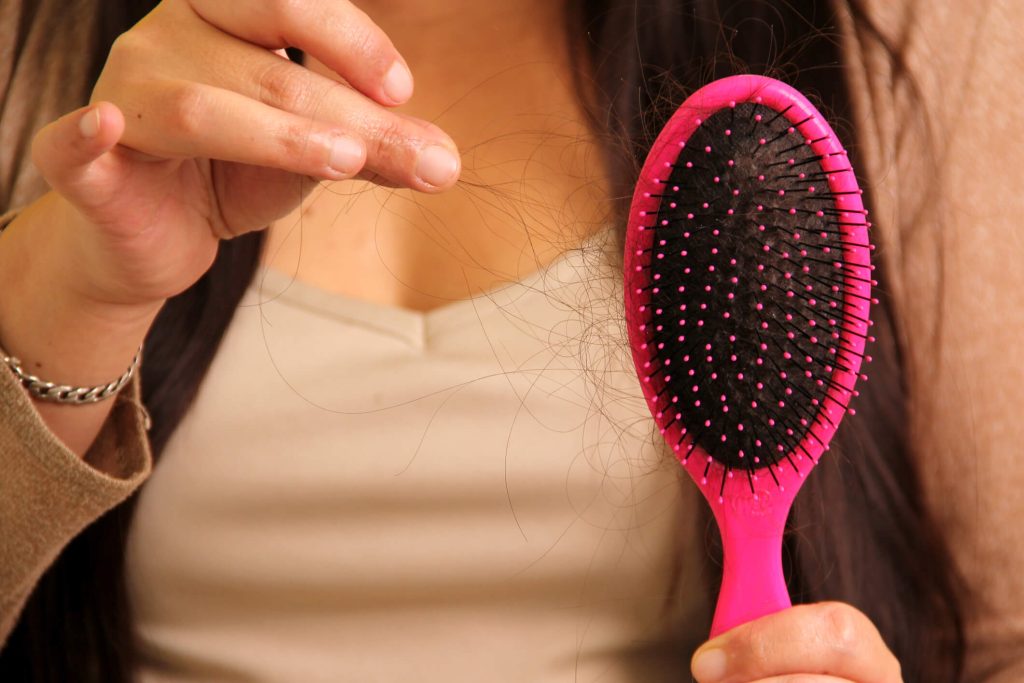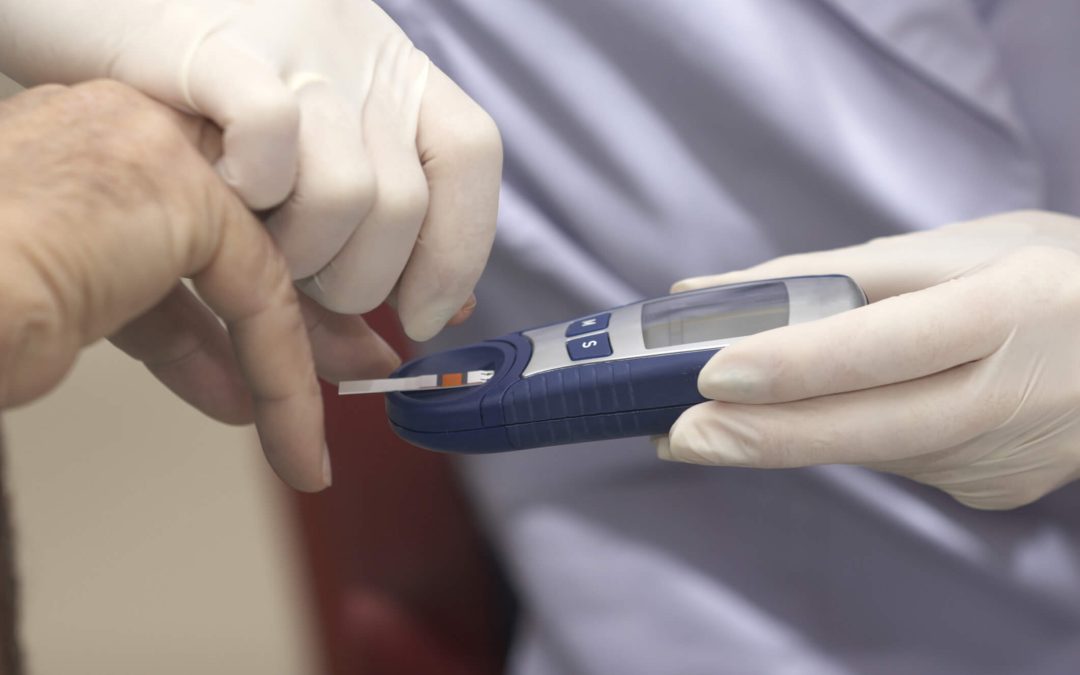Diabetes is a complex condition that affects multiple aspects of health, including hair loss. Many people, particularly those with type 1 diabetes or type 2 diabetes, notice hair thinning and wonder if there’s a direct connection between their blood sugar levels, glucose, and the hair growth cycle. Since diabetes management involves careful monitoring of medications, diet, and exercise, as well as understanding the role of endocrinology in regulating hormones, it is essential to explore how this chronic disease impacts scalp health, hair follicles, and regrowth. Consulting experts in dermatology can help with early prevention and targeted treatment strategies.
This article explores the causes of diabetes, its impact on cells, and the relationship between medications and hair loss, including adults who experience thinning. It also examines treatments, the best way to support hair growth, and how head health is crucial to overall well-being. Additionally, it discusses essential content on rights related to medical care and treatment options.
How Diabetes Affects Hair Growth
The Hair Growth Cycle and Diabetes
The hair growth cycle consists of three main phases:
- Anagen (growth phase) – Hair actively grows.
- Catagen (transition phase) – Hair prepares for shedding.
- Telogen (resting phase) – Hair falls out naturally.
A steady supply of oxygen, nutrients, and blood flow is necessary to maintain healthy hair growth. However, in diabetes, high blood sugar can damage blood vessels, restrict circulation in the bloodstream, and affect essential parts of the body, including hair follicles. This disruption in the process may cause premature hair thinning and loss, leading to further issues with scalp health. The lack of proper circulation and energy delivery to the follicles can impact hair regrowth, resulting in undesirable results such as persistent thinning and shedding.
Blood Sugar Control and Hair Health
Proper blood sugar control is essential for overall health, including skin, scalp, and hair follicles. Fluctuations in blood sugars can contribute to inflammation, a known trigger for alopecia areata, an autoimmune disorder causing patchy hair loss. A review of medical research highlights how poor diabetes management can lead to various complications, increasing the risk factors for hair thinning. A study on diabetes and hair health emphasizes monitoring glucose levels and adjusting medications as needed. Understanding the role of different products for hair regrowth and consulting reliable sources can help individuals find the best form of treatment. Managing diabetes effectively improves overall well-being and can support healthier hair, which may benefit those in appearance-focused careers.
The Role of Insulin and Diabetes Medications
Since insulin plays a vital role in metabolism, an imbalance may lead to hormonal disturbances that trigger hair loss. Certain medications, like Ozempic, prescribed for type 2 diabetes, may also have side effects that affect hair follicles. This raises questions like “Does Mounjaro Cause Hair Loss?” and “Does Adderall Cause Hair Loss?” as different drugs interact uniquely with the body. Understanding the language used in medical discussions can help patients navigate treatment options. Some drugs used for conditions like cancer may require specific interventions to manage their impact on hair health. Taking the proper steps toward care includes scheduling an appointment with a specialist to assess affected areas of the scalp. Consulting an MD with expertise in endocrinology and dermatology can provide a clearer picture of how diabetes impacts life and long-term hair regrowth.
Alopecia Areata and Diabetes
Studies have linked alopecia areata with diabetes, suggesting that autoimmune responses play a role in both conditions. In alopecia, the immune system mistakenly attacks hair follicles, leading to patches of hair loss. The effect of this attack can vary depending on the amount of immune activity and overall health. Some cases result in complete scalp baldness, while others cause partial thinning. Evidence suggests that individuals with prediabetes may also experience similar immune-driven hair concerns due to fluctuations in blood sugar levels. Since organs and tissues rely on proper circulation for nourishment, poor glucose regulation may impact hair health. Seeking professional advice on managing blood sugar and preventing further damage can help maintain hair growth and overall well-being.
Can Smoking Lead to Hair Loss?
For people managing diabetes, additional factors like smoking can further impact hair loss. Research shows that smoking affects blood vessels, reducing circulation to the scalp and worsening hair thinning. Combined with diabetes, this creates a greater risk for hair follicles to become weakened. Poor blood sugar control and unhealthy lifestyle habits may also contribute to weight loss, which can be a symptom of uncontrolled diabetes. Consulting a healthcare provider can help determine the best approach to improving hair health while managing diabetes. Additionally, understanding privacy choices when seeking medical treatment ensures patients receive the highest quality of care tailored to their needs.
Symptoms and Diagnosis of Diabetes-Related Hair Loss
Common Symptoms
If you have diabetes and notice thinning or excessive shedding, be aware of these key symptoms:
- Increased hair loss over time
- Slow regrowth after shedding
- Patches of alopecia
- Weak, brittle hairs
Seeking a Diagnosis
A doctor or dermatologist can help determine whether diabetes, medications, or another disorder is the cause of hair thinning. Identifying the underlying issue is crucial for selecting a patient’s treatment option. Diagnosis typically involves blood tests to check blood sugar levels, hormones, and nutritional deficiencies. Different types of tests may be needed depending on the intervention required. Research from DOI-backed studies provides valuable insights into potential causes and treatments. Making health tips a part of daily care can also support overall hair health. Early medical consultation can prevent further hair loss and promote regrowth if something feels off.
Ways to Prevent and Treat Hair Loss from Diabetes

Effective hair restoration for diabetes-related hair loss with expert care at Neograft Hair Restoration in Orange County California.
Improving Blood Sugar Control
One of the best ways to prevent diabetes-related hair loss is by managing blood sugar levels through:
- A balanced diet rich in vegetables, lean proteins, and whole grains
- Regular exercise to improve circulation and blood flow
- Taking prescribed medications and supplements as directed
- Monitoring blood sugars to prevent hyperglycemia
Medications and Topical Treatments
Several treatment options can help with hair regrowth, including:
- Minoxidil (Rogaine) – A topical solution that promotes hair growth
- Finasteride – A prescription medication that slows hair thinning
- Biotin – A supplement that supports hair follicle health
- Propecia – A medication often recommended for men experiencing hair loss
Neograft Hair Restoration in Orange County
For those seeking permanent hair loss treatment, Neograft Hair Restoration Orange County provides advanced solutions. The procedure involves hair follicle transplantation, restoring scalp coverage for a natural look. This technique addresses manifestations of hair thinning caused by menopause, hormonal imbalances, or medical conditions. Among the most effective options available, Neograft is trusted by leading companies specializing in hair restoration. The use of cutting-edge data and research ensures high success rates. Proper sleep and post-procedure care play a crucial role in recovery. For more details on treatment options, check your inbox for updates or schedule a consultation.
Other Factors That Contribute to Hair Loss
Pregnancy and Hair Loss
Hair Loss During Pregnancy is common due to hormonal fluctuations. However, women with diabetes may experience prolonged thinning, requiring specialized care. Understanding the science behind hormonal changes and their impact on hair health can help address this problem effectively. Various medical books and studies highlight the connection between diabetes and hair loss. The latest news in dermatology and endocrinology provides updated treatments for managing hair thinning. A top concern for many women, hair loss during pregnancy affects countless lives, making exploring every available treatment version essential. Consulting a doctor can help determine the right approach based on the number of factors contributing to hair shedding.
Age, Stress, and Genetics
Age, stress, and family history also play a role in hair loss. High-stress levels can trigger excessive shedding, while genetic factors influence how individuals respond to hair growth changes. Many experts discuss these factors in a medical book, offering insights into prevention and treatment options.
Hairstyles and Tension
Tight hairstyles like braids can increase tension on hair follicles, leading to traction alopecia. To minimize damage, individuals with diabetes should choose gentle hairstyles.
Lifestyle Changes for Hair and Scalp Health
Nutrition and Supplements
A nutrition plan rich in zinc, minerals, and vitamins supports hair regrowth. Some recommended foods include:
- Leafy greens for iron and vitamins
- Protein-rich foods to strengthen hair follicles
- Supplements like biotin for improved hair growth
Exercise and Circulation
Regular exercise improves blood flow, delivering essential nutrients to the scalp. Studies show that maintaining an active lifestyle helps with blood sugar control, reducing the risk factors for hair loss.
Final Thoughts: Managing Hair Loss with Diabetes
Diabetes and hair loss are closely linked, with blood sugar levels, medications, and circulation playing crucial roles. While hair thinning can be frustrating, various treatments, lifestyle changes, and supplements can help restore growth.
If you are struggling with hair loss, consider consulting a dermatologist or exploring advanced solutions like Neograft Hair Restoration Orange County. Whether through medications, hair loss treatment, or diet modifications, there are many ways to support healthy hair regrowth.
For more information, explore recent articles, newsletters, and reviews on the latest advancements in hair loss treatment.
Frequently Asked Questions
Can Diabetes Cause Eyebrow or Eyelash Hair Loss?
Yes, diabetes can lead to hair loss beyond the scalp, including eyebrows and eyelashes. Poor blood circulation, autoimmune reactions, and hormonal imbalances can weaken hair follicles, causing thinning or loss in these areas. Managing blood sugar levels and using nourishing oils or prescription treatments may help restore hair growth.
How Does Stress from Diabetes Contribute to Hair Thinning?
Chronic stress caused by managing diabetes can trigger telogen effluvium, which prematurely pushes hair into the shedding phase. Additionally, stress can raise cortisol levels, affecting hormone balance and leading to hair thinning. Stress management techniques like meditation, exercise, and sleep can support hair health.
Are There Natural Remedies to Prevent Diabetes-Related Hair Loss?
Natural remedies such as aloe vera, rosemary oil, and onion juice may help improve scalp circulation and promote hair regrowth. A balanced iron, zinc, and biotin diet also supports hair health. However, these remedies should be used alongside proper diabetes management for the best results.
Does Hair Loss from Diabetes Affect Men and Women Differently?
Yes, men and women may experience hair loss differently. Men often notice receding hairlines or bald patches due to male pattern baldness, while women may experience overall thinning or widening part lines. Hormonal fluctuations, particularly in women with PCOS or menopause, can worsen diabetes-related hair loss.
How Long Does It Take for Hair to Regrow After Blood Sugar Stabilization?
Hair regrowth varies based on individual health, the severity of diabetes, and treatment methods. In mild cases, noticeable improvement may be seen within 3 to 6 months of stabilizing blood sugar levels. However, long-term damage to hair follicles may require additional treatments like minoxidil or hair transplants.
Can a Ketogenic Diet Help Prevent Hair Loss in Diabetic Patients?
A ketogenic diet may help some diabetic patients by stabilizing blood sugar levels and reducing insulin resistance. However, rapid weight loss and nutrient deficiencies associated with keto can lead to temporary hair shedding. If following a keto diet, ensure adequate intake of vitamins and minerals to support hair health.
What Are the Best Shampoos for Managing Diabetes-Related Hair Loss?
Look for shampoos containing biotin, caffeine, ketoconazole, or saw palmetto, as they help strengthen hair and reduce shedding. Sulfate-free, gentle shampoos with moisturizing ingredients can also prevent scalp dryness, which is common in people with diabetes. Consult a dermatologist for recommendations based on individual scalp conditions.
Is There a Connection Between Diabetes, Dandruff, and Scalp Health?
High blood sugar levels can lead to dry, flaky skin, including the scalp, which may increase dandruff. Poor circulation and fungal infections are also more common in diabetic individuals, further affecting scalp health. Using medicated anti-dandruff shampoos and maintaining proper hydration can help alleviate symptoms.
Can Bariatric Surgery for Diabetes Lead to Hair Loss?
Yes, bariatric surgery, which helps with weight loss and diabetes management, can cause temporary hair loss due to nutrient deficiencies and rapid weight changes. Ensuring proper vitamin intake, particularly iron, zinc, and B vitamins, can minimize hair shedding after surgery.
What Role Does Vitamin Deficiency Play in Hair Loss for Diabetics?
Iron, biotin, vitamin D, and zinc deficiency are ordinary in diabetics and can contribute to hair thinning. Poor absorption of nutrients due to diabetes-related digestive issues can also impact hair growth. Taking doctor-recommended supplements and eating a nutrient-rich diet can help prevent hair loss.



Recent Comments